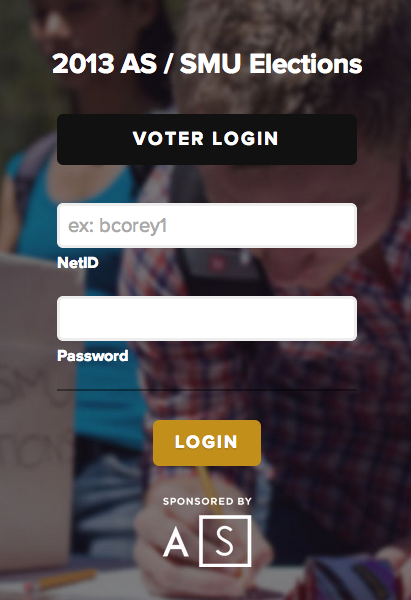Each new season brings with it an annual campus occasion. Depending on the month, that might be Mock Rock, Nationball, Punk ‘n’ Pie … the list goes on. With every spring semester comes one of the larger annual events: Associated Students and Student Missionary Union elections. It’s not unusual for a recurring event to change here or there, but the 2013 election season is peppered with changes — some for better, some for worse.
This year, AS made the decision to move elections to five weeks earlier than last year. When the elections took place after Missions Conference, there was a full week dedicated to campaigning and voting. With the change in schedule this year, the student body had to focus on the different campaigns during a full week that included clubs fair, AS Spirit Week, Catch Me If You Can, preparing for the Student Congress On Racial Reconciliation and Biola’s 105th birthday. AS elections deserve to capture campus attention without distraction — we are choosing who gets to divide up and pass around hundreds of thousands of dollars for different student groups and events. If anything ought to garner the student body’s undivided attention, it’s these elections.
In past years one of the biggest events during elections week was a special chapel devoted to introducing the student body to the assorted candidates. They did not have a full chapel to themselves this year — instead, students were introduced to their potential future leaders through Facebook blasts and chalk scrawlings at midnight on Feb. 13. The absence of an elections chapel makes sense in light of Spiritual Development’s recent push for a more unified chapel “curriculum,” but to some extent it also put more pressure on candidates to campaign well — the responsibility of getting their names out fell completely on them. If they didn’t get their names out, no one else would.
Students were also deprived of one of the key means of learning about candidates’ policies when they were not permitted to ask impromptu questions at the debate. Each candidate was allotted only eight minutes to speak on predetermined questions presented by the moderators. Though there was a time for discussion afterward, students appear to be losing the ability to directly learn about and voice concerns to the future student leaders whose job is to represent them.
Not all of the changes were negative. As technology advances, so should our practices. Voting this year became decidedly more progressive. It was made available online and on iPads stationed around the school. This streamlined the process and made it more accessible for those who might otherwise not have voted. With voting online, everyone can easily access their favorite candidates and even look up more information on them in another tab or window.
Change can be good. But moving the elections schedule earlier to an already congested week on campus, not having the opportunity to campaign at AS chapel, and limiting candidates’ speaking time as well as not allowing students to ask questions at the debate all chip away at the same thing — the ability of students to get to know their candidates. Making voting easier is a good thing, but it serves little purpose if the voters are not well informed.







